The governments of 29 countries have agreed at an ICAO-sponsored conference in India to increase cooperation to decarbonise aviation across the Asia-Pacific region. The agreement was one of the key takeaways from the Second Asia Pacific Ministerial Conference on Civil Aviation, which also endorsed commitments to jointly improve aviation security, infrastructure, gender equality and airspace management. “This declaration is a roadmap for the future of aviation in one of the world’s fastest-growing regions,” commented ICAO Council President Salvatore Sciacchitano. The communiqué coincided with the same day announcement of a feasibility study into the production of sustainable aviation fuel in Fiji, one of the smallest APAC nations, but also one of those most at risk from the impacts of climate change. The project is a collaboration between Fiji Airways, the Fiji Sugar Corporation and Lee Enterprises Consulting, with backing from the Asian Development Bank.
The ICAO conference, held in New Delhi, attracted more than 200 delegates from across the region including 12 ministers, eight deputy or vice ministers and 24 directors general responsible for civil aviation, with India’s Minister for Civil Aviation, Shri Kinjarapu Rammohan Naidu elected chairperson of the conference, and Fiji’s deputy PM and Minister for Tourism and Civil Aviation, Viliame Rogoibuli Gavoka elected vice chairperson.
India’s Prime Minister, Narendra Modi, also attended the proclamation of the meeting’s resolutions, designated as the Delhi Declaration. “It demonstrates a collective will to embrace innovation while prioritising safety, security and environmental responsibility,” said Sciacchitano.
Commitments outlined but not detailed in the ICAO announcement included investing in infrastructure to support sustainable growth and emerging aviation concepts, reducing the emissions and other environmental impacts of aviation, and enhancing regional cooperation in air traffic management. As well, to symbolise both cleaner aviation and ICAO’s 80th anniversary, India announced an initiative to plant 80,000 trees.
Decarbonisation measures, particularly commitments to develop and use SAF are increasing across the Asia-Pacific region, with projects and commitments of various scales in markets including Japan, Singapore, China, Thailand and Australia. But the Fiji SAF study has potential for significantly broader local impact in the Pacific Island nation, which relies heavily on tourism, aviation and sugar cane milling for its livelihood, yet is increasingly at risk from severe weather events and rising sea level.
Backed by funding from the Asian Development Bank, the partnership of the government-controlled Fiji Airways, Fiji Sugar Corporation and Lee Enterprises Consulting will investigate the feasibility of a SAF production and utilisation model in Fiji which combines local agricultural resources and international technical expertise.
The study will explore the possible use of sugar cane and its waste in the local production of ethanol and other energy sources which can be used to develop SAF, and will evaluate the suitability of molasses, sugar, bagasse and biomass as possible feedstocks for the fuel.
In a joint statement, the partners said the project “is poised to position Fiji as a leader in the development, production and use of SAF in the Pacific region, with the potential to showcase a model that can be replicated in other regions.”
It added: “Sugar cane has a significant ability to absorb carbon due to its rapid growth and high biomass production. The CO2 captured during its growth phase contributes to a net reduction in greenhouse gas emissions when the resulting SAF is used in aviation.”
It is also one of the most productive crops in terms of biomass yield produced per hectare of land, providing large volumes of feedstock for use in SAF production, while the crop’s high sugar content can easily be fermented into ethanol, which can then be upgraded to SAF.
Fiji Airways has committed to decarbonising its operations through the use of operational measures, deployment of SAF and other pathways, and recently announced a partnership with US-based Odys Aviation to evaluate that company’s autonomous hybrid-electric freight drones for potential deployment between the nation’s 330 islands.
It has also been accepted as a full member of the oneworld global airline alliance, which has pledged that by 2030, 10% of the fuel used by its member carriers will be SAF.
“This is a landmark project for Fiji and the South Pacific region,” said Peter Seares, the airline’s chief legal and sustainability officer. “The feasibility assessment will lay a foundation for Fiji’s national airline to meet its sustainability goals while utilising local resources that will help to reinvigorate and transform the domestic sugar industry, create new jobs and improve the lives of Fijians.”
The Fiji Sugar Corporation is the largest sugar milling company in the South Pacific region and a major contributor to the national economy, while Lee Enterprises Consulting (LEC), an international specialist in biofuels and alternative energy, will lead the technological and economic study into transforming sugar-linked waste into alcohol-to-jet SAF via multiple production pathways.
“This collaboration is a testament to the power of partnerships in addressing global challenges such as climate change,” said LEC’s CEO Jason White. “By bringing together industry leaders and local stakeholders, we are not only advancing the production and use of sustainable aviation fuel but also promoting economic resilience and environmental stewardship in the Pacific.
“LEC has brought together a world-class team of bioenergy industry experts for this project and we are excited to deliver the economic and technical feasibility roadmap for how this important sustainability capability can be realised.”
In addition to providing funding support and facilitating knowledge transfer between the project partners, the Asian Development Bank will coordinate the project’s implementation, and ensure that all activities meet international sustainability standards and contribute to regional development goals.

Top photo: Fiji Airways Boeing 737 Max 8 at Canberra
Bottom photo (ICAO): Senior government and ICAO representatives at the Second Asia Pacific Ministerial Conference on Civil Aviation in New Delhi
Global SAF production will be featured at Aviation Carbon 2024


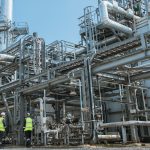
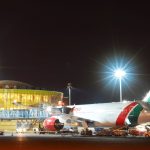
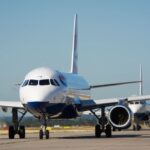
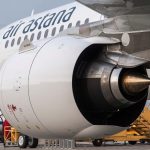

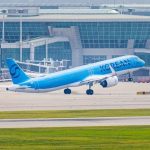



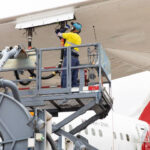




More News & Features
UK government starts new consultation on SAF revenue certainty mechanism
African Development Bank and Japanese industrialist unite to explore SAF production in Africa
LanzaJet and KMG agree to progress SAF production project in Kazakhstan
SkyNRG says e-SAF and carbon removals should not be competing strategies for aviation decarbonisation
South Korea announces mandatory SAF blending for departing international flights from 2027
Catagen launches SAF production company and signs offtakes with Ryanair and Shell